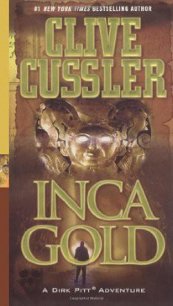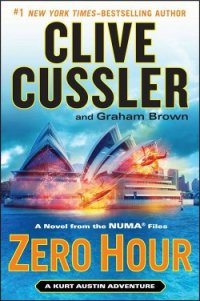Spartan Gold - Cussler Clive (полная версия книги .TXT) 📗
Sam checked the list. “Doesn’t look like it. What else do we know about Leuce?”
Remi paged through her legal pad. “She was carried off by Hades, the god of the underworld. Depending on which version you go with, upon her death she was transformed into a poplar tree, either by Hades or by Persephone.”
“Poplar tree . . . ” Sam murmured, tapping on the keyboard. “The Leuce is a type of poplar.” He checked his list of Morpeth names. “This might be something: William Turner, born in Morpeth in 1508. Considered by many to be the father of English botany.”
“Interesting. So is the line about Turner himself, or about poplar trees?”
“No idea. What’s the last part . . . ‘the land that stands alone.’ ”
“My first thought would be island—they stand alone in the middle of water.”
“My thought, too.” Sam’s Google search of “island,” “poplar,” and “Turner” turned up no revelations. “There’re several references to a Poplar Island wildlife refuge in the Chesapeake Bay, but there’s no connection to Turner—unless you count Tina Turner donating some money to the refuge, that is.”
“Let’s try the first line again—‘Man of Histria, thirteen by tradition.’ ”
As they had with Morpeth, they generated a list of historical figures associated with the Istrian Peninsula, but like Morpeth, none of them were historically noteworthy.
They turned to the second line—House of Lazarus at Nazareth—and dug deeper, looking for more obscure references. “How about this?” Remi said, reading from the MacBook’s screen. “During the Middle Ages, Christian religious orders used to oversee leper colonies known as Lazar houses.”
“As in Lazarus, the patron saint of lepers?” Sam asked.
“Right. In Italy, the term ‘Lazar’ morphed into ‘lazaret,’ a quarantine station for ships and crews. The first recorded lazaret was established in 1403 off the coast of Venice, on the island of Santa Maria di Nazareth.” She looked up at Sam. “That could be our Lazarus and Nazareth connection.”
“We’re getting warmer, but it can’t be that easy,” he said. “We’re still missing the first line.”
He did another Google search, combining and subtracting words until he came across a 2007 National Geographic story describing the discovery of a mass grave for bubonic plague victims who had been quarantined to protect Venice’s uninfected.
Sam said, “The site was on an island in the Venice Lagoon called Lazzaretto Vecchio.”
Remi flipped through her notes. “Vecchio . . . that’s the modern name for Santa Maria di Nazareth. Sam, that’s got to be it.”
“Probably, but let’s be sure.”
Twenty minutes and dozens of search permutations later, he said, “Okay, here. I used the words ‘island,’ ‘Venice,’ and ‘plague’ and came up with this: Poveglia. It’s another island in the Venice Lagoon, used to quarantine plague victims during the seventeenth century. The bodies were buried in mass pits, sometimes the living mixed in with the dead, or cremated in mass pyres. Estimates put the number of dead between . . .” He paused and his eyes went wide.
“What?” Remi asked.
“Estimates put the number of dead between a hundred sixty thousand and a quarter million.”
“Good Lord.”
“Something else: Before it was called Poveglia, it was Popilia.”
“Why does that sound familiar?”
“Popilia is a derivation of Populus—Latin for ‘poplar.’ Poveglia was once covered in poplar groves.”
“So on one hand we’ve got Poveglia, on the other Santa Maria di Nazareth. Both are solid possibilities. You’re right: It’ll come down to the first line of the riddle and our mysterious man from Istria.”
“Either way, our next stop is Venice.”
SEVASTOPOL
“I can tell by your tone the news is not good,” Hadeon Bondaruk said into the phone.
“They’re gone and one of my men is dead,” Kholkov said. “We found the transponder chip from the Fargo woman’s phone aboard one of the electric boats. How they discovered it I have no idea.” Kholkov recounted the rest of the encounter at Konigssee, starting with their arrival at Saint Bartholomae and ending with his losing the Fargos on the lake. “Somehow they must have slipped back into Schonau without us spotting them.”
“Did they find the bottle?”
“I don’t know.”
“And where are they now?”
“We found a local that saw someone matching their description getting into a Mercedes. We traced it to a car service in Salzburg. We’re on our way there now. We’ll check the motels, the airport, the train stations—”
“No,” Bondaruk said.
“Pardon me?”
“Every time we get close to them they slip the noose. I think it’s time we step back and let the Fargos do what they do best. In the meantime, I want you to go ahead with your alternate plan.”
“There are risks.”
“I don’t care. I’m tired of chasing these people all over Europe. You have a man in mind?”
“Yes,” Kholkov said. “According to my sources, he’s the only one with a family—a wife and two daughters.”
“Get started.”
“If he reports it rather than—”
“Then make sure he doesn’t report it. Convince him that cooperation is his only way out. You can do that much, can’t you?”
“I’ll make the call.”
CHAPTER 53
VENICE, ITALY
The water taxi pulled to a stop and Sam and Remi climbed out. Together they stared at the surrounding buildings.
“No matter how many times I see it, it always takes my breath away,” Remi said.
Known to English tourists as Saint Mark’s Plaza, the Piazza San Marco is in fact a trapezoid sitting at the eastern mouth of the Grand Canal. Famous for its pigeons and geometric “hopscotch” stone inlays, it is perhaps the most famous plaza in all of Europe, home to some of Venice’s greatest attractions, many dating back a thousand years or more.
Sam and Remi turned in a circle, taking it in as if seeing it for the first time: Saint Mark’s Basilica, with its Byzantine domes and spires; the Campanile, its three-hundred-foot bell tower; the imposing Gothic Palazzo Ducale, or Doge’s Palace; and finally, directly opposite the basilica, the Ala Napoleonica, the one-time home of Napoleon’s administrative residence.
Whether a coincidence or not they would soon know, but they were keenly aware of Napoleon’s connection to Venice and the Piazza San Marco, which he’d dubbed “the drawing room of Europe.” In 1805, soon after Venice was named part of the newly created Kingdom of Italy, Napoleon ordered the Ala Napoleonica built after realizing his initial choices—the Zecca, or mint; the Libreria Marciana; and the Procuratie Nuove—were not large enough to accommodate his court.
It was nearly six o’clock and the sun was dipping toward the horizon over the roof of the Marciana Library. Some of the piazza lights had come on, casting amber pools on the arches and domes. Most of the day’s tourists had left and the piazza was quiet save for the background babble of voices and the cooing of the pigeons.
“Who are we meeting?” Remi asked.
“The curator,” Sam replied. “Maria Favaretto.”
Before catching their two o’clock Lufthansa flight from Salzburg, Sam had called the curator of their destination, the Museo Archeologico, and introduced himself. Luckily, Signora Favaretto had heard of them. Their discovery of the lost diary of Lucrezia Borgia, the fifteenth-century Machiavellian political operator/seductress, a year earlier in Bisceglie had been front-page news in Venice, she told Sam. In fact, a former colleague of hers was the assistant curator of the Vatican Library’s Museo Borgiano, where he and Remi had donated the diary. Favaretto agreed to meet them for an after-hours visit of the Museo Archeologico.




